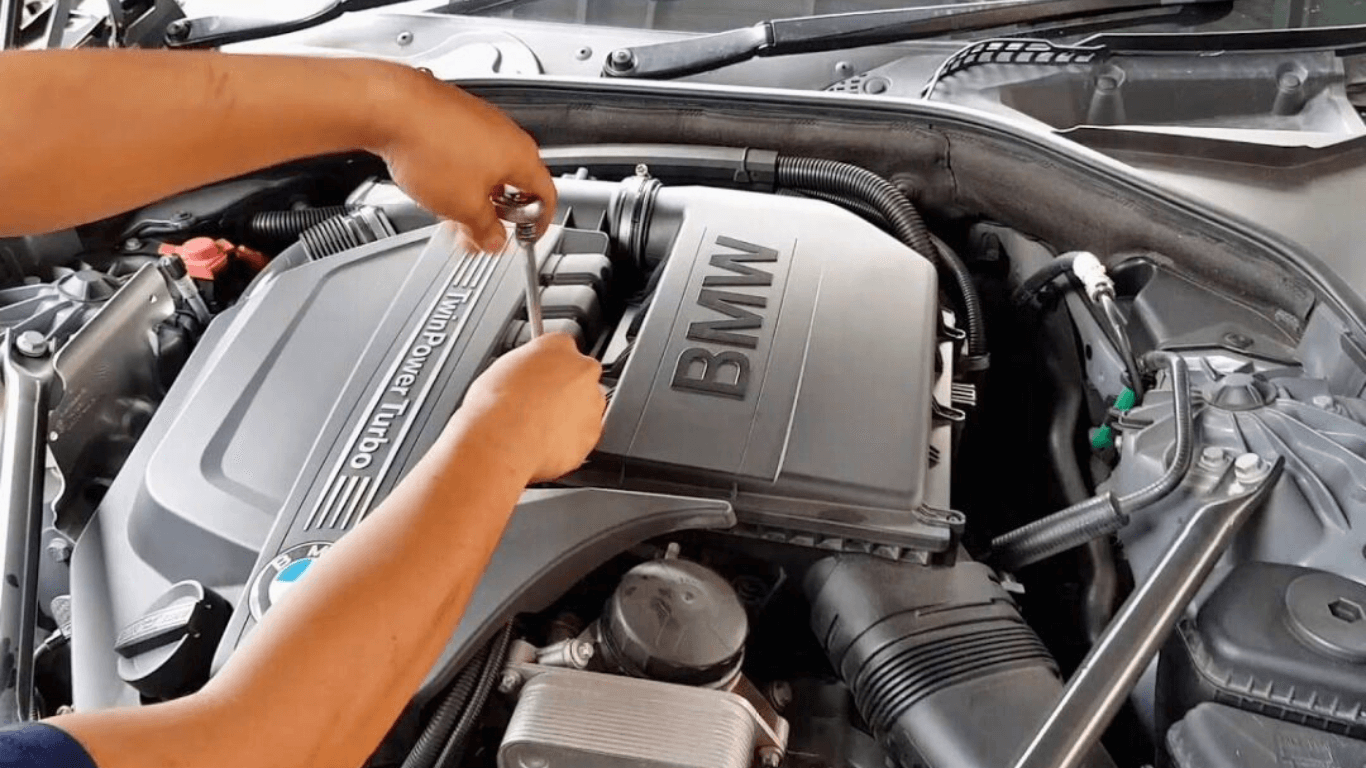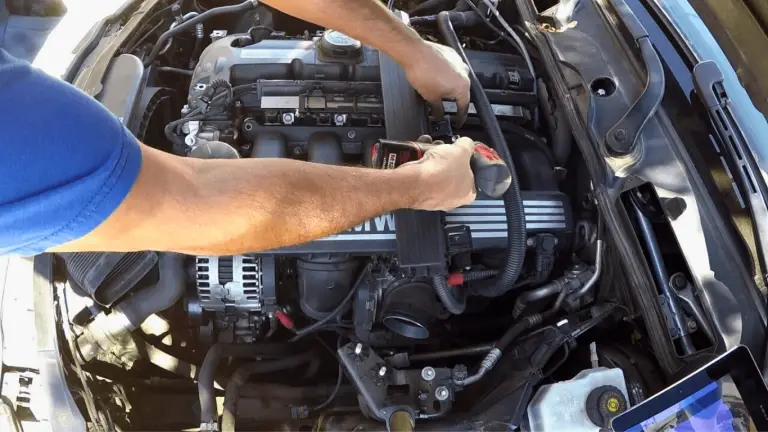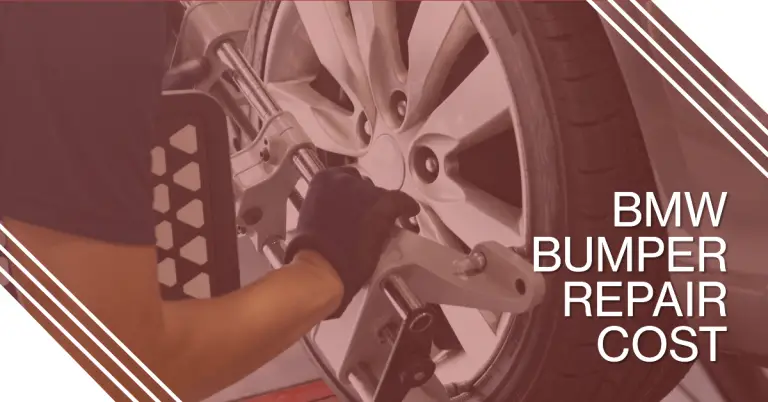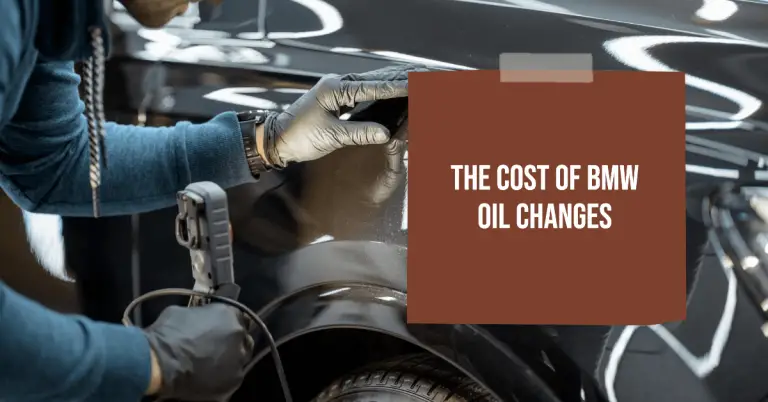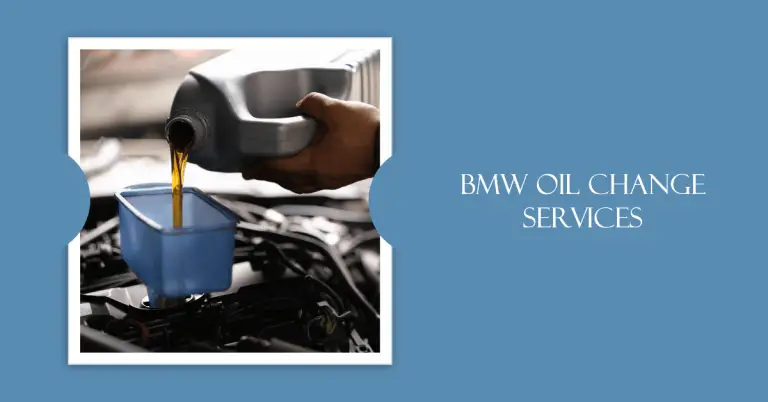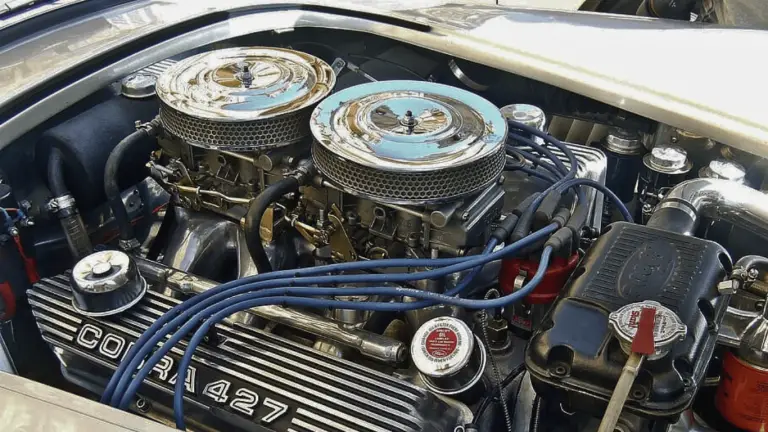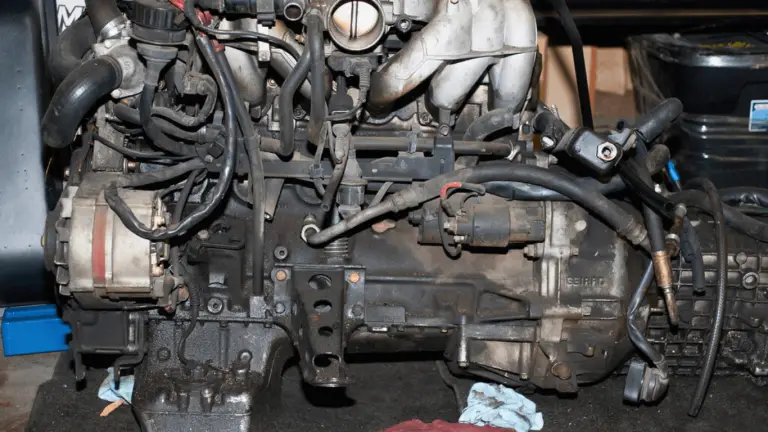BMW Oil Leak Repair Cost Guide: Symptoms, Causes & Average Repair Prices
Do you love your BMW but hate how often you need to top off the oil? Those mysterious puddles in the driveway are annoying, but a far more serious issue could be developing under the hood. Left unchecked, an oil leak can lead to complete engine failure in your prized BMW.
So how much can you expect to pay for BMW oil leak repairs? The average total cost to fix common oil leaks in a BMW ranges from $200 for a simple valve cover gasket replacement to $750 or more for an oil pan gasket repair job. Labor times vary between 1 and 6 hours for different leak sources.
Oil leaks may seem like a fairly minor issue at first. But in reality, persistently low oil levels will eventually cause catastrophic engine damage if the leaks are not addressed. Catching and repairing leaks early is crucial.
In this complete guide, you’ll learn:
- The most common causes of BMW oil leaks
- How to spot the symptoms of an oil leak in your BMW
- Average BMW oil leak repair costs for different sources
- Tips to prevent expensive oil leaks in your BMW
- When you should repair oil leaks (hint: as soon as possible!)
- Whether it’s ok to drive with an oil leak in your BMW
- How to help prevent future BMW oil leaks
Let’s start by looking at what causes those seemingly endless oil leaks in BMWs in the first place.
What Are the Most Common BMW Oil Leak Causes?
Oil leaks can develop over time in your BMW from a number of sources. Here are some of the most common culprits:
1. Worn Valve Cover Gasket
One frequent offender is a leaking valve cover gasket. This thin gasket seals the space between the valve cover and cylinder head. Over time, normal engine vibration can cause the old gasket to harden and shrink, allowing oil to seep through.
Replacing a worn or cracked valve cover gasket is one of the most common oil leak repairs on BMW engines.
2. Failed Oil Filter Housing Gasket
Another very common leak source is a damaged oil filter housing gasket. This seals the area around your oil filter. The gasket can get brittle with age and high heat cycles. Once it fails, oil will leak readily from the loose seal.
3. Leaking Oil Pan Gasket
The oil pan gasket provides an airtight seal between the oil pan and engine block. If this gasket gets old and dried out, it can begin leaking oil at a rapid pace. A compromised oil pan gasket is one of the most severe oil leaks facing BMWs.
4. Clogged or Damaged Oil Separator
Many BMW engines also have an oil separator tank. Its job is to return vaporized oil back to the sump. If the separator gets clogged, pressure builds up and can blow out gaskets or seals, causing leaks.
5. Bad Crankcase Vent Valve
A faulty crankcase vent valve is another potential oil leak source in some BMW models. Its job is to regulate the vacuum inside the crankcase. If it fails, excess pressure can push oil past gaskets and seals.
What are Symptoms of an Oil Leak in a BMW?
How can you tell if your BMW is suffering from an oil leak? Be on the lookout for these common warning signs:
- Oil drips or puddles under your BMW – The most obvious sign of an oil leak is fresh oil drips or puddles under where your car is parked. Look under the engine, transmission, and undercarriage for evidence of leaks.
- Oil burning smell from the exhaust – Oil leaking onto hot engine components can burn, producing a distinct burning oil smell from the exhaust pipe. This smell indicates an external engine leak.
- Low oil/needing frequent oil top offs – If your BMW constantly needs oil added between changes, an internal or external leak may be to blame. Check your oil level weekly to identify increasing consumption.
- Oil residue around the engine or undercarriage – Inspect the engine and underbody carefully for oil residue near gaskets, seals, the oil filter housing, and drain plug. Look for evidence of oil leaks.
Don’t ignore these warning signs. Addressing oil leaks early is critical to avoid catastrophic engine damage in your BMW.
Now let’s look at what you can expect to pay for some of the most common BMW oil leak repairs.
How Much Does it Cost to Fix BMW Oil Leaks?
BMW oil leak repair costs vary widely by the leaking component and how extensive the oil leak is. Minor leaks can often be fixed with simple gasket replacements. More severe leaks typically require resealing the oil pan.
Here are average parts and labor costs to fix some of the most common BMW oil leaks:
Valve Cover Gasket Replacement
A leaking valve cover gasket is one of the most prevalent oil leaks on BMW engines. Thankfully, it’s also one of the more affordable ones to fix. Here are typical valve cover gasket repair costs:
- Parts – $50 to $300 for a new valve cover gasket kit with grommets and seals
- Labor – 2 to 5 hours for the repair, or $200 to $500 in shop fees
- Total cost – Expect to pay $250 to $800 to replace a leaking valve cover gasket in a BMW.
While valve cover gasket leaks are common, the good news is they are inexpensive to fix if caught early.
Oil Filter Housing Gasket Replacement
A failed oil filter housing gasket is another extremely common oil leak source in BMWs. Here are the typical costs:
- Parts – The gasket itself is inexpensive, usually $20 to $140 for a DIY repair.
- Labor – Book time is around 1 to 3 hours for this job, or $100 to $300 at an average shop rate.
- Total cost – Plan on spending $120 to $440 to replace a leaking oil filter housing gasket in your BMW.
Again, this is a relatively affordable fix that pays dividends in saved repair costs down the road.
Oil Pan Gasket Replacement
An oil pan gasket leak repair is one of the most expensive fixes. Parts are affordable, but labor hours are extensive due to the intensive work of dropping the subframe or engine to access the oil pan. Costs typically are:
- Parts – BMW oil pan gaskets range from $50 to $150 for most models.
- Labor – Since the oil pan is burried deep under the engine, expect a steap labor time of 3 to 6 hours for this job, or $300 to $600 in shop fees.
- Total cost – With high labor hours, you’ll usually pay $350 to $750 to reseal or replace an oil pan gasket.
If the leak is severe, the oil pan may need replacement instead of just a new gasket. Prices start around $800 and up.
As you can see, oil pan gasket repairs are costly due to labor. This is a job best left to a knowledgeable BMW specialty mechanic.
Tips to Prevent BMW Oil Leaks
The best way to avoid pricey BMW oil leak repairs is preventative maintenance. Here are some tips to help minimize the chances of oil leaks in your BMW:
- Use the recommended weight oil – Heavier oils can potentially accelerate seal wear. Stick to the oil weight in your owner’s manual.
- Change your oil regularly – Extending changes beyond the recommended interval allows more contaminants into the oil that can wear seals.
- Fix leaks as soon as you notice them – Even minor leaks tend to worsen over time if neglected. Address them promptly before it leads to a major repair.
- Use quality parts and a skilled mechanic – Don’t skimp on parts quality or shop skill for repairs. Poor workmanship can lead to repeat leaks.
An ounce of prevention is worth a pound of cure when it comes to maintaining your BMW engine. With diligent preventative maintenance and promptly addressing any leaks, you can help minimize the chances of needing major oil leak repairs down the road.
When Should You Repair BMW Oil Leaks?
If you’ve noticed symptoms of an oil leak in your BMW, when is the right time to have it repaired? In most cases, the answer is as soon as possible. Here’s why:
- Even small, slow leaks tend to worsen over time if left unchecked, eventually leading to extensive oil loss.
- The longer an oil leak persists, the higher the contamination risk if dirt and debris enter the engine through the compromised seal or gasket.
- With adequate oil, your BMW engine relies on a thin oil film to prevent metal-on-metal contact. Oil leaks disrupt this vital oil flow, greatly accelerating wear.
- Oil leaks increase the chances of oil starvation or abnormally low oil pressure, which can lead to catastrophic engine failure.
To identify leaks in a timely manner, make it a habit to check under your BMW for new leaks about once a week. Watch for the symptoms covered earlier like oil drips under the car.
For very slow leaks that are still at the seepage stage, it can be ok to wait until your next scheduled maintenance service to address them. But once a noticeable leak has developed, repairs shouldn’t wait.
The engine needs a constant supply of clean oil for proper lubrication and cooling. Don’t let a leak threaten the health of your BMW engine.
Can You Drive With an Oil Leak in a BMW?
With an obvious oil leak, is it ok to continue driving your BMW short distances? That depends on the severity of the leak and proper precautions.
For safety, it’s generally not recommended to continue driving once you detect an oil leak in your BMW. With inadequate oil flow, you risk potential engine overheating, oil starvation, or even sudden engine failure.
However, with certain precautions, you may be able to continue driving a short distance:
- The leak must be very minor and slow, not a major stream of oil loss. Just seepage.
- Monitor your oil level constantly, topping off as needed to keep it in the safe range. Don’t let it fall below the minimum line.
- Make sure to have plenty of extra oil on hand for top-offs. Check the dipstick before every drive.
- Limit your driving to essential short trips only until the leak can be repaired. Avoid extended high speed highway driving.
- Watch your oil temperature gauge closely for any signs of overheating, and pull over immediately if the oil pressure warning light activates. Either scenario means you risk imminent engine failure.
Again, the only truly safe option is to have oil leaks repaired before continuing to drive your BMW. Don’t play games with your engine’s longevity. But in a pinch, very minor seepage can be managed over short distances by constantly monitoring oil level before every trip.
The next question is, how can you help prevent those annoying BMW oil leaks in the first place?
How Can You Prevent BMW Oil Leaks?
Oil leaks are often considered an inevitable fact of life with older BMWs. But you’re not entirely at the mercy of oil leaks as your engine ages. Here are some tips to help prevent BMW oil leaks:
- Address leaks promptly – As soon as you notice signs of a leak, have it diagnosed and repaired. Small leaks become major issues if ignored. Don’t let seepage turn into a stream.
- Follow the maintenance schedule – Sticking diligently to oil changes, filters, gaskets, and seals servicing as recommended helps maintain your engine and prevent premature aging.
- Use high quality oil and parts – Choose oils, filters, and gasket materials from reputable brands known for quality. Stay away from el-cheapo components that tend to fail quickly.
- Don’t delay needed repairs – If a leak is diagnosed, don’t put off the recommended repair. The longer it persists, the greater the potential for catastrophic engine damage from inadequate lubrication and oil contamination.
Your BMW’s longevity depends heavily on staying ahead of leaks before they can do real damage. With close monitoring and preventative maintenance, you can help minimize oil leaks and keep your BMW engine running smoothly for years to come.
Conclusion
Oil leaks may seem like a nuisance, but left unchecked they can lead to thousands in repairs and even complete engine failure. Keep a close eye out for the symptoms of BMW oil leaks like drips under the car and oil burning smells. Address any leaks promptly to avoid exacerbating the issue. And be diligent about preventative maintenance and using quality components to help minimize the chances of leaks in the first place.
With some care and attentiveness, your prized BMW can continue running smoothly for many carefree miles. Don’t let small leaks turn into hugely expensive repair bills. Monitor your BMW closely, address leaks promptly, and perform preventative maintenance to help maximize your engine’s longevity.

